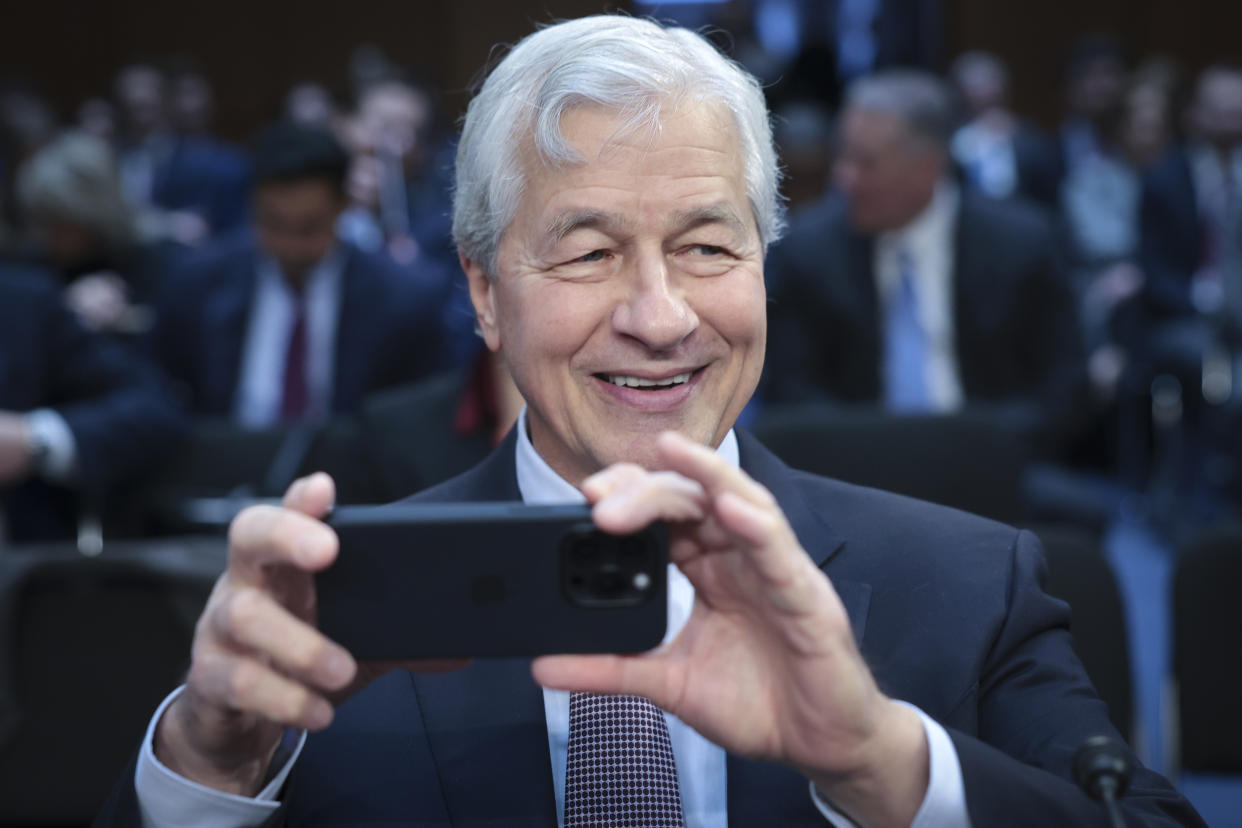The AI trade has a Jamie Dimon problem: Morning Brief
This is The Takeaway from today's Morning Brief, which you can sign up to receive in your inbox every morning along with:
The chart of the day
What we're watching
What we're reading
Economic data releases and earnings
Ask anyone in the investment world how important AI will be for their business, and few could offer a better answer than what JPMorgan (JPM) CEO Jamie Dimon said Monday.
"While we do not know the full effect or the precise rate at which AI will change our business — or how it will affect society at large — we are completely convinced the consequences will be extraordinary and possibly as transformational as some of the major technological inventions of the past several hundred years," Dimon wrote in his annual letter to shareholders. "Think the printing press, the steam engine, electricity, computing and the Internet, among others."
Some analysts have referred to AI as ushering in the "Fourth Industrial Revolution." Dimon's comparisons make the same point, more specifically.
For JPMorgan, this is great.

The benefits of this technology have helped the nation's largest bank wrangle its vast web of customers and business lines. Given the interconnectedness of the global financial system, we can be confident the firm is not alone.
But the AI trade that swept investors off their feet in early 2023 was not a sudden realization that big business was, or would be, using AI applications en masse.
Rather, as Yahoo Finance's Dan Howley argued last year, the launch of OpenAI's ChatGPT made the abstraction of enterprise-level data management technology tangible for consumers.
No longer was AI "merely" helping engineers or developers sort through thousands of lines of code or hundreds of commands looking for the problem, the inefficiency, the bug.
Now, you or I could call up an interface and ask it to write us a song about, say, a business journalist trying to write a newsletter on deadline about Jamie Dimon's opinion on AI.
Making AI tangible for consumers brought the lucrative search business into play for Big Tech. And the business of search is display ads.
Combine the economics of targeted digital ad businesses with an investment cycle that has reshaped the income statement of companies like Nvidia (NVDA), and it's not hard to see why the stock market latched on to this theme.
As we move further past this initial burst of excitement, however, the AI boom looks less like a revolution and more like the grist for executive decrees over the coming years.
AI ushering in a "Fourth Industrial Revolution" is exciting. But Marc Benioff used this framing back in 2017 — the same year Dimon himself first referenced AI.
"Since the firm first started using AI over a decade ago, and its first mention in my 2017 letter to shareholders, we have grown our AI organization materially," Dimon wrote, adding that the firm now employs over 2,000 people focused on this area.
"We have been actively using predictive AI and ML [machine learning] for years — and now have over 400 use cases in production in areas such as marketing, fraud, and risk — and they are increasingly driving real business value across our businesses and functions," Dimon added.
The AI hype cycle outkicking its coverage does not make this technology vaporware for the consulting class. Rather, it implies the opposite.
Investors are less interested in what's happening today and more excited about the possibilities of tomorrow. Suggesting any cracks in the AI trade then, perhaps, says less about the perceived limits of the technology's possibility and more about the benefits being realized today.
Click here for the latest stock market news and in-depth analysis, including events that move stocks
Read the latest financial and business news from Yahoo Finance

